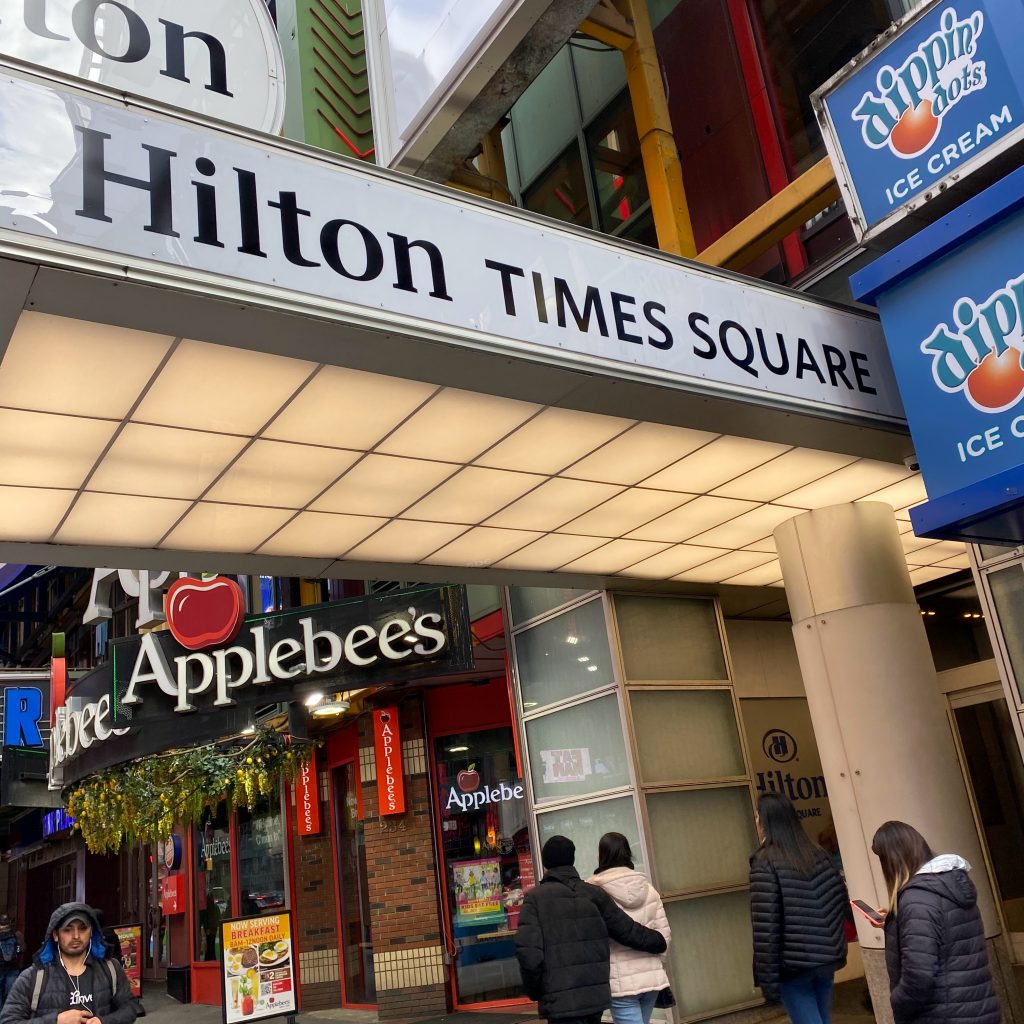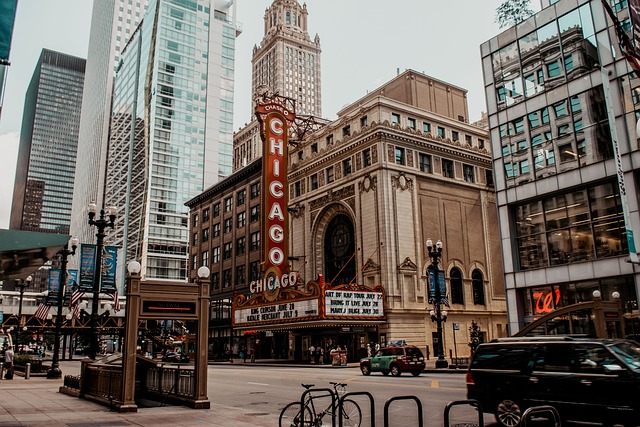
Photo By Tracy Nicole
Most people have heard of resort fees.
Hotels in major cities like New York and Chicago take this another step.
They charge what is called a destination fee, usually between $20 to $50 a day.
These fees only apply in the center of the city or major tourist areas.
This is where most tourists want to stay though.
I like staying in the center of each city, but I don’t want to pay any destination fees.
You don’t have to pay destination fees either.
Here is how to avoid them.
What are destination fees?

Similar to resort fees, hotels charge destination fees in major cities.
They claim to cover amenities and services that may not be been included with your stay.
Many people would not expect something similar to a resort fee in the middle of a city like New York.
As I said earlier, hotels claim to charge these fees to cover things not included.
Some of the amenities and services are things you might not need or want.
I will list them in the next section.
These fees are charged per day.
So, if your destination fee where $25, and your stay were 4 days, you would pay an extra $100.
Honestly, I found the hotel next door might not charge a destination in the same chain.
So, unless you have your sights set on a particular hotel like the Hilton Times Square, you can avoid these fees by staying around the corner.
Read below in more detail how this works.
Most people hate these fees because your hotel will cost more than the original price.
Which cities and hotels have destination fees?

Most of the larger cities like New York, Chicago, Boston, or San Francisco will have a destination fee.
On my recent trip to San Francisco, these fees were everywhere in Union Square where tourists want to stay.
The following hotel chains have destination fees:
- Marriott
- Hilton
- Hyatt
- IHG
- Wyndham
This is not an exhaustive list of all chains that charge these fees though.
Here are two examples of destination fees in New York City.
The limited service Hilton Garden Inn New York/Times Square Central charges a $25 daily mandatory destination fee.
This fee includes:
- premium guest internet access
- daily $10 food and beverage credit for use in hotel restaurant and bar
- laundry services up to $25
- bike pass
- Starbucks coffee in lobby
The full service Hilton Times Square charges a $35 destination fee.
This fee includes:
- premium guest internet access
- daily $35 food and beverage credit fir use in hotel restaurant and bar
- bicycle rentals
The Hilton Garden Inn.was one of the few limited service hotels that charged a destination fee.
Most limited services hotels don’t charge this fee.
What does the destination fee cover?

As you can see in the above examples, destination fees cover things like:
- premium internet
- food and beverage credit
- laundry
- coffee
In the Hilton Times Square example, the $35 destination fee could be used as a food and beverage credit.
That is nice that it covers food and beverage, but who wouldn’t rather save $35?
Why Do hotels charge a destination fee?

This is just my opinion.
Hotels charge a destination fee to make money.
Hotels are businesses.
Still, this just appears as a made up extra fee.
Some people are thinking of approaching Congress to stop destination fees.
How To Know Which Hotel Charges A Destination Fee?
I have seen people book a hotel with a destination fee without any knowledge.
If you are booking large cities and staying in the center of the city, pay attention during booking.
Just before you book, look at the full bill.
It will show you if there is a destination fee.
If you don’t want to pay it, you can find another hotel.
How To Avoid Destination Fees

Now, you know what destination fees are.
You also know how to be on the lookout for them.
Here are ways to avoid them.
1. Do your research if staying in the center of the city

Back in the day, before I was a blogger, I would stay in the suburbs to save money on hotels.
I still use that tactic, but usually I have old memories of staying in too many suburban hotels.
So, I generally only stay in the center of each city.
My recent trips to Chicago and New York were in the center of both cities.
Neither stay included a destination fee.
In New York, I stayed at the Doubletree Times Square West.
In Chicago, I stayed at the Marriott Autograph Talbot hotel.
I generally choose Hilton or Marriott hotels,
I keep both apps on my phone
Basically, when I booked both of those hotels, I just checked each hotel in the center of each city until I got to hotels with no destination fees.
The Hilton Times Square noted above has a destination fee, but the Doubletree Times Square West where I stayed did not.
The Doubletree was just around the corner from the Hilton that charged a destination fee.
I will probably try the Hilton Times Square later, and pay the destination fee.
The Doubletree was nice though.
So, as you see, the hotel around the corner in the same chain may not charge a destination fee.
So, do your research.
In general, I find Hilton Doubletree and Marriott Autograph as well as hotels just a little out (like the Gold Coast in Chicago instead of River North) don’t charge a destination fee.
2. Choose a limited service hotel in the center of the city
Most limited service hotels in the center of the city don’t charge a destination fee.
Examples of limited service hotels brands are:
- Hilton Garden Inn
- Hampton Inn
- Homewood
- Hyatt Place
- Element
- Fairfield Inn
- Courtyard
- Residence Inn
Limited service hotels are hotels that don’t offer full service features like room service.
If you don’t mind not getting full service hotel, then this is ok.
I usually prefer full service hotels.
When the price gets outrageous, I will choose a limited service hotel.
Honestly, I don’t find the price difference between full service and limited service hotels to be that different.
So, I often stay at full service hotels.
Most of my U.S. flights are only 2 days.
My road trips are only overnight too.
When the price is dramatically different, I will choose a limited service hotel though again.
3. Don’t stay in the center of the city
If you are not staying in the center of a city or tourist area, you will not pay a destination fee.
For instance, instead of choosing Times Square or Midtown in New York City, you can stay in the Village or the Downtown Financial District.
You will not pay a destination fee in either of those locations.
Of course, if you are like me, and like to stay in the center of each city, you may not want to do this.
As usual, you should be aware of this method though.
4. Have hotel elite status

For example, if you are staying at a Hyatt hotel, and are Globalist, you won’t be charged a destination fee.
This is just Hyatt though.
5. Book an award stay
Most award stays will not include a destination fee either.
So, use your points.
More Ways To Save Money On Hotels

Avoiding destination fees are not the only way to save money on hotels,.
Here are more ways to save money:
- Join loyalty program
- Use reward points
- Be flexible in dates
- stay farther from the city center
Here is a post that outlines basics to save money on hotels.
Make sure you know all these ways to save money.
Summary
Destination fees are like resort fees.
No one wants to pay them.
Of course, they just seem like a way for hotels to make money.
You don’t have to pay destination fees.
This blog is about spending as little as possible on travel.
I don’t plan on paying many (if any) destination fees.
I say many instead of any because certain hotels I may want to stay at least once like the Hilton Times Square have a destination fee.
As usual, if this post was useful, share it below on social media.


